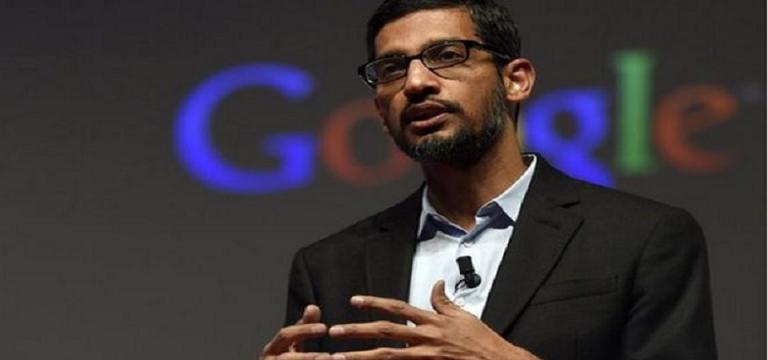
It is big money: $10 billion. That is what Google’s parent company plans to drop into India as a new redesign begins. That redesign is the digitization of India. India has more than 500 million internet users; Google will find quick IP addresses therein, without managing clusters of 50 countries, as in Africa. If you add what Walmart, Amazon and Facebook have invested in India in the last five years, you can understand that American tech companies see their futures in India.
Walmart invested in India’s leading ecommerce company, Amazon has been pumping money that even a federal minister was worried about, and a few weeks ago, Facebook shipped truckloads of U.S. dollars to Jio, a telecom operator. Now, Google continues the party for team India.
In all these things, these firms have maintained one thing: India gave us a template of its digital future, and we see a path to partnership. Digital India is agnostic of party and impervious to the vagaries of policy somersaults. India has sustained it for years.
Register for Tekedia Mini-MBA edition 19 (Feb 9 – May 2, 2026): big discounts for early bird.
Tekedia AI in Business Masterclass opens registrations.
Join Tekedia Capital Syndicate and co-invest in great global startups.
Register for Tekedia AI Lab: From Technical Design to Deployment (next edition begins Jan 24 2026).
Contrast with Nigeria where every new minister in the information technology ministry would like to develop its own ICT plan, only for a successor to abandon it four years later. When that becomes the norm, no one understands the end-goal, and capital stays out. Nigeria needs to play long-term on our policies so that we can unlock quality capital.
Google will invest $10bn (£7.93bn) in India in the next five to seven years, the chief executive of its parent company Alphabet Inc has announced.
Sundar Pichai spoke at the annual Google for India event, held online.
The investment will be used to build products and services for India, help businesses go digital and use technology “for social good”.
“This is a reflection of our confidence in the future of India and its digital economy,” Mr Pichai said.
With more than 500 million active internet users in the country, India is perhaps the biggest potential growth market for Google.
The investment will be made through the Google for India Digitisation Fund
Mr Pichai said the fund would focus on four areas to scale up digital infrastructure in India. It would:
- enable “affordable access and information for every Indian in their own language”
- “build new products and services that are deeply relevant to India’s unique needs”
- empower local businesses who want to go digital
- “leverage technology and AI [artificial intelligence] ]for social good” in sectors like health, education and agriculture
---
Connect via my
LinkedIn |
Facebook |
X |
TikTok |
Instagram |
YouTube


We have done Vision 2020, 7 Point Agenda, can’t even remember GEJ’s pet name, and under the current regime we are doing 3 Point Agenda and amalgam of acronyms and nomenclature headed by the Vice President or any loyal guy within the Villa.
Between Ogbonnaya Onu and Pantani, we have heard both diverging and converging policies circling around ICT and broad science-technology nexus, and the talk show continues.
And then the Information Ministry and its NBC subset are more worried about cable/streaming companies having exclusive rights to contents, and why nobody should increase prices. And for years, state governors felt that the road to wealth was paved with slamming ridiculous prices for ROW, broadband penetration remained under forty percent, but they were more concerned with how much you pay before you could dig ground and pass fibre cables.
If Nigeria is really populated, with opportunities flowing everywhere, why is the capital inflow not happening? If India is getting ten billion dollars from Google, Nigeria should be getting at least two billion dollars, where is ours?
Brazil has comparable population to Nigeria, but in what ways can we compare capital inflow between Brazil and Nigeria?
Nigeria is simply pathetic.